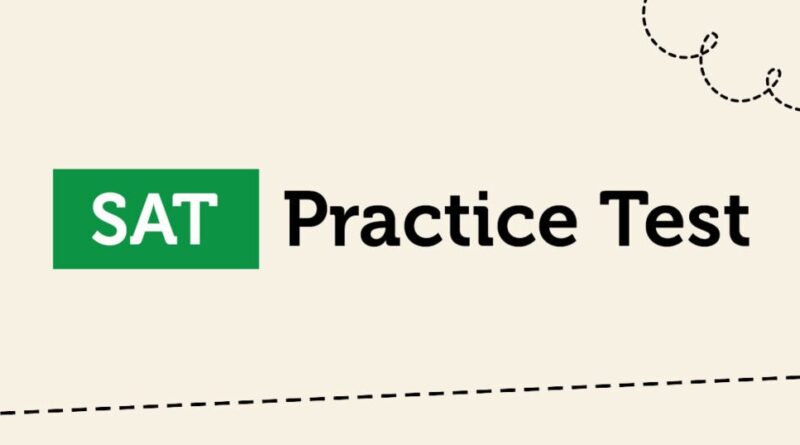TOEFL Prep: 10 Proven Tips to Maximize Your Speaking, Reading, and Writing Scores
The TOEFL (Test of English as a Foreign Language) is a crucial step for non-native speakers aiming to study or work in English-speaking countries. It evaluates your skills in reading, listening, speaking, and writing. Achieving a high score can open doors to prestigious universities and job opportunities. In this guide, we’ll cover 10 proven tips to help you improve your performance on the TOEFL’s speaking, reading, and writing sections. Don’t forget to incorporate SAT practice exam strategies to boost your preparation for other standardized tests.
1. Understand the TOEFL Format
Before diving into your preparation, familiarize yourself with the test’s structure. The TOEFL is divided into four sections:
- Reading: 3–4 passages, 36–56 questions
- Listening: 4–6 lectures, 34–51 questions
- Speaking: 6 tasks, 20 minutes
- Writing: 2 tasks, 50 minutes
Knowing the format will help you manage your time effectively and reduce test-day anxiety.
2. Build Strong Reading Skills
The reading section measures your ability to understand and analyze academic texts.
Tips for Improving Reading Skills:
- Read Widely: Focus on reading academic articles, newspapers, and journals to expand your vocabulary and comprehension.
- Practice Skimming and Scanning: Skim for the main idea and scan for specific details to answer questions quickly.
- Take Notes: Jot down key points as you read to help you retain information.
Pro Tip: Practice answering sample questions under timed conditions to get used to the test’s pace.
3. Develop Listening Strategies
The listening section tests your ability to understand spoken English in academic settings.
How to Improve Listening:
- Listen to English Daily: Podcasts, news broadcasts, and lectures are great resources.
- Take Notes While Listening: Focus on key points, such as the main idea, supporting details, and transitions.
- Practice Summarizing: After listening, summarize what you heard in your own words.
4. Master the Speaking Section
The speaking section requires you to respond to both personal and academic prompts. It’s one of the most challenging parts of the TOEFL for many test-takers.
Tips for Speaking:
- Practice Regularly: Record yourself speaking and listen for areas that need improvement.
- Focus on Pronunciation and Fluency: Speak clearly and avoid long pauses.
- Use Transitional Phrases: These help organize your thoughts and improve coherence (e.g., “In addition,” “On the other hand”).
5. Enhance Your Writing Skills
In the writing section, you’ll complete two tasks: an integrated writing task (reading and listening, then writing a response) and an independent writing task (writing an essay based on a prompt).
Writing Tips:
- Organize Your Essay: Use a clear structure—introduction, body paragraphs, and conclusion.
- Develop Strong Thesis Statements: Clearly state your main idea and support it with relevant examples.
- Review Grammar and Vocabulary: Avoid repetitive language and use a variety of sentence structures.
6. Expand Your Vocabulary
A rich vocabulary is essential for all sections of the TOEFL.
How to Build Vocabulary:
- Read Daily: Exposure to new words in context is the best way to learn them.
- Keep a Vocabulary Journal: Write down new words and review them regularly.
- Use Flashcards: Digital flashcard apps like Anki can help with memorization.
7. Practice Time Management
Time management is crucial for success on the TOEFL.
- Set Timed Practice Sessions: Mimic real test conditions to get comfortable with the time limits.
- Prioritize Questions: Don’t spend too much time on a single question. Move on and return later if time allows.
8. Take Full-Length Practice Tests
Taking full-length practice tests will help you build endurance and get a realistic idea of your current level.
- Simulate Test Conditions: Find a quiet space and stick to the test’s timing.
- Review Your Mistakes: Analyze your errors and adjust your study plan accordingly.
- Combine Resources: While TOEFL-specific resources are crucial, using SAT practice exam materials can help improve your academic reading and writing skills.
9. Seek Feedback
Getting feedback on your speaking and writing is essential.
- Work with a Tutor or Mentor: They can help identify weaknesses and suggest improvements.
- Join Study Groups: Collaborating with others can provide different perspectives.
- Use Online Communities: Participate in forums where test-takers share tips and advice.
10. Stay Consistent and Positive
Preparation for the TOEFL takes time and effort, but consistency is key.
- Set a Study Schedule: Break your preparation into manageable chunks.
- Stay Motivated: Celebrate small victories along the way.
- Take Care of Yourself: Get enough rest, exercise, and eat well to keep your mind sharp.
Final Thoughts
Achieving a high TOEFL score requires a combination of strategy, consistent practice, and the right resources. By following these 10 proven tips, you’ll be well on your way to maximizing your speaking, reading, and writing scores. Make sure to incorporate SAT practice exam strategies to strengthen your academic skills further.
With dedication and the right approach, you can walk into the test center with confidence and achieve your target score!




